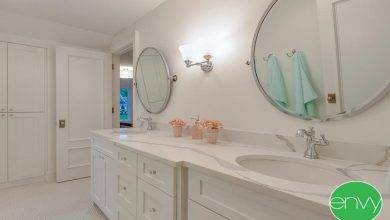
Tenant’s Responsibilities for Repairs and Maintenance
Renting an apartment or house comes with certain responsibilities for both tenants and landlords. While landlords are generally responsible for maintaining the property, tenants also have their share of responsibilities when it comes to repairs and maintenance. In this article, we’ll explore what tenants are typically responsible for and how to navigate repair and maintenance issues as a renter. If you’re in the market for a new rental, you can start your search for apartments for rent.
Understanding Your Lease Agreement
Before delving into tenant responsibilities, it’s essential to understand that the specific terms and conditions regarding repairs and maintenance can vary depending on your lease agreement. Lease agreements are legally binding contracts that outline the rights and responsibilities of both parties—the landlord and the tenant. It’s crucial to thoroughly read and comprehend your lease agreement to know exactly what is expected of you as a tenant.
Routine Maintenance
Tenants are typically responsible for routine maintenance tasks that keep the rental property in good condition. These tasks may include:
1. Cleaning:
Tenants should maintain a clean living space, which includes regular cleaning of floors, surfaces, appliances, and fixtures. This helps prevent dirt and grime buildup, which can lead to more significant issues over time.
2. Pest Control:
Tenants are responsible for addressing minor pest problems, such as ants or roaches. Keeping the property clean and properly storing food can help prevent infestations.
3. Replacing Light Bulbs:
Replacing light bulbs and batteries in smoke detectors is generally the tenant’s responsibility. Regularly checking and replacing these items ensures safety and functionality.
4. Yard Maintenance:
If the rental property has a yard, tenants are often responsible for basic yard maintenance tasks like mowing the lawn, trimming bushes, and weeding flower beds.
Reporting Repairs
While tenants are responsible for routine maintenance, they should promptly report any significant repairs or issues to the landlord or property management. Examples of repairs that landlords typically handle include:
1. Plumbing Problems:
Issues like leaks, burst pipes, or clogged drains are typically the landlord’s responsibility to repair.
2. Heating and Cooling Systems:
Repairs to heating, ventilation, and air conditioning (HVAC) systems are generally the landlord’s responsibility.
3. Electrical Problems:
Any electrical issues, such as faulty wiring or circuit problems, should be reported to the landlord.
4. Structural Damage:
Damage to the structure of the property, including the roof, walls, or foundation, is the landlord’s responsibility to address.
5. Appliance Malfunctions:
If appliances provided by the landlord (e.g., refrigerator, stove, dishwasher) malfunction due to normal wear and tear, the landlord is typically responsible for repairs or replacements.
Emergency Repairs
In cases of emergency repairs that directly affect your health, safety, or the habitability of the property, tenants should contact the landlord or property management immediately. Examples of emergency repairs include:
- Gas leaks
- Burst pipes
- No heat in the winter
- Lack of hot water
- Electrical hazards
- Major roof leaks
Landlords are usually required to respond to emergency repairs promptly, and they may have 24/7 emergency contact numbers for such situations.
Documenting Repairs
When requesting repairs or reporting maintenance issues, it’s essential to document the communication. Keep a record of the date and time you reported the problem, the method of communication (e.g., email, phone call), and any responses from the landlord or property management. This documentation can be valuable if a repair dispute arises.
Requesting Timely Repairs
Landlords are generally obligated to make necessary repairs in a reasonable and timely manner, as stipulated by local housing laws. If your landlord fails to address a significant repair issue within a reasonable timeframe, you may have legal options to enforce repairs or terminate the lease, depending on local regulations.
Tenant-Requested Repairs
In some cases, tenants may request specific repairs or upgrades that are not the landlord’s responsibility. However, tenants should obtain written permission from the landlord before making any alterations or repairs to the property. Unauthorized repairs or alterations can result in financial penalties or lease violations.
Conclusion
Understanding your responsibilities as a tenant regarding repairs and maintenance is essential for a harmonious landlord-tenant relationship and a comfortable living environment. While tenants are generally responsible for routine maintenance, landlords are obligated to address significant repairs and maintain the habitability of the property.
Always refer to your lease agreement and local housing laws to ensure you’re following the correct procedures and understand the division of responsibilities. Effective communication between tenants and landlords is key to promptly resolving repair issues and maintaining a well-maintained rental property.



